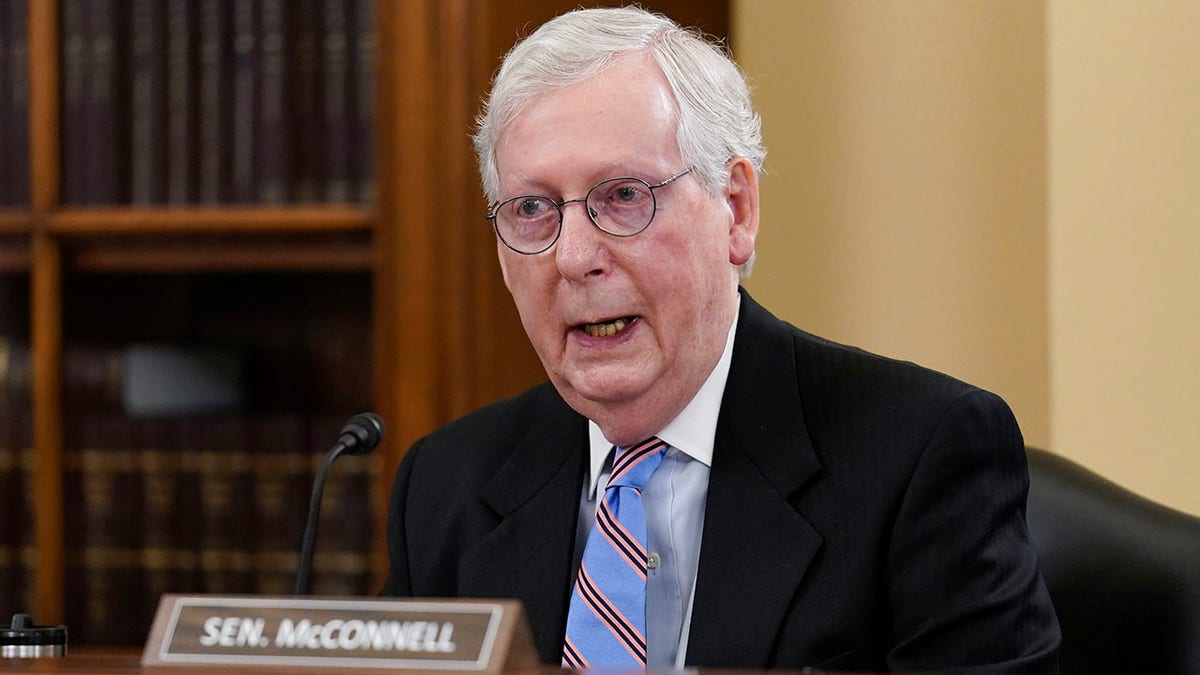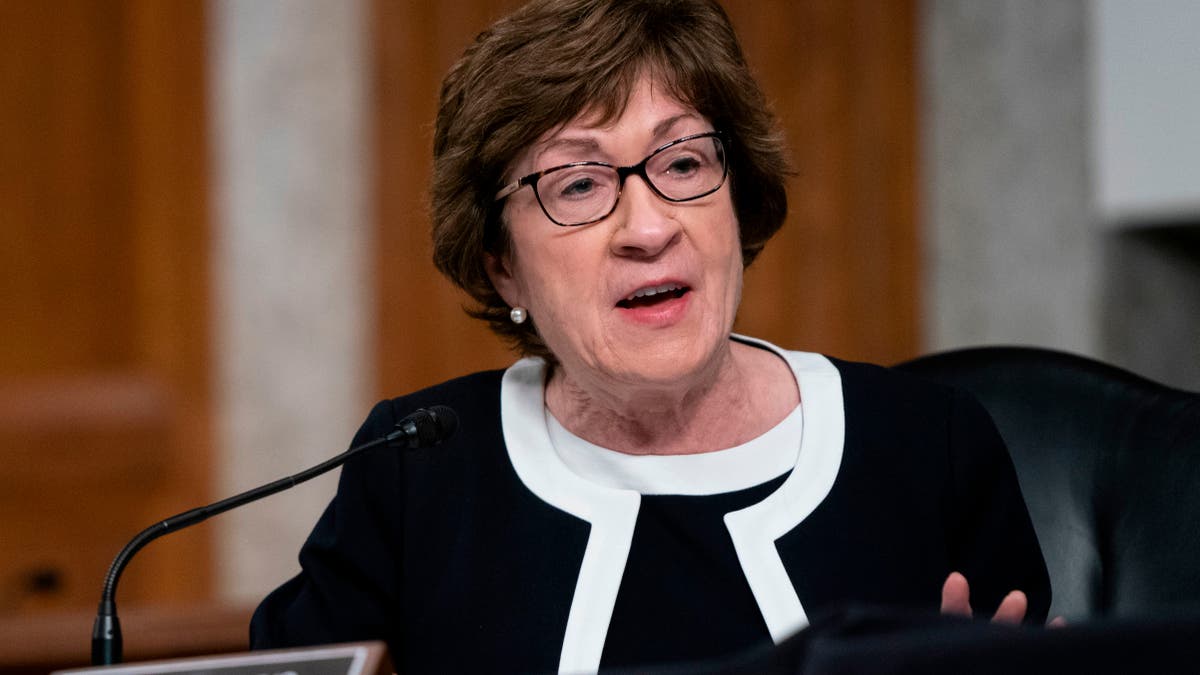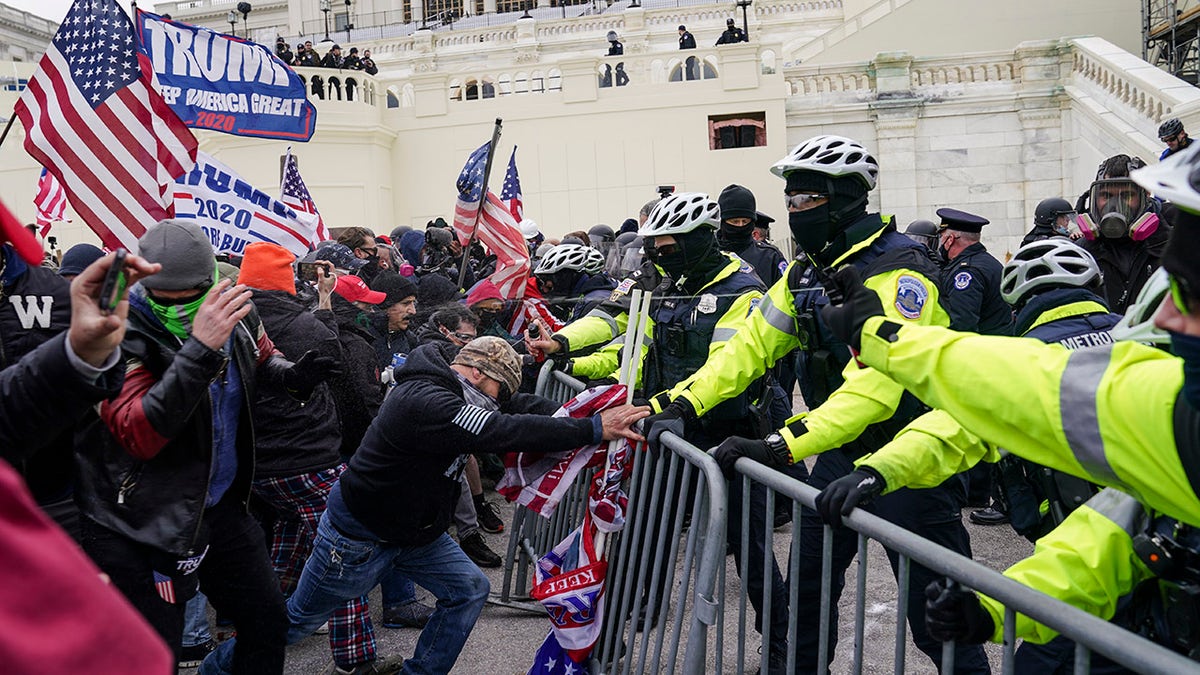Fox News Flash top headlines for May 20
Fox News Flash top headlines are here. Check out what's clicking on Foxnews.com.
The bill for a Jan. 6 commission that passed the House of Representatives on Wednesday faces an uncertain future in the Senate, where Minority Leader Mitch McConnell, R-Ky., aligned himself with House Minority Leader Kevin McCarthy, R-Calif., in opposition to the bipartisan legislation.
Even some of the Senate's most moderate Republicans, who voted to convict former President Donald Trump for inciting an insurrection over the Jan. 6 attack on the Capitol by a mob of his supporters, have expressed doubts about the legislation. Chief among their concerns is the fact that Democratic members of the commission will be able to unilaterally appoint the commission's staff.
This muddies the path to the 10 Republican votes proponents of the bill would need to break a filibuster and means the current version of the bill without changes will have a very hard time passing the Senate.
"I think it's a good idea to have a commission," Sen. Mitt Romney, R-Utah, said Wednesday, according to his office. "There have been some reports that the staff is only selected by the Democratic leader of the commission – that would be a nonstarter. I'll look and if there are amendments that have to be made to make it truly bipartisan, then I or others could propose that."

Senate Minority Leader Mitch McConnell, R-Ky., speaks at a Senate Rules Committee markup to argue against the "For the People Act," at the Capitol in Washington, Tuesday, May 11, 2021. McConnell said on Wednesday that he opposes a House bill to create a bipartisan commission to investigate the Jan. 6 attack on the Capitol by a mob of Trump supporters. (AP Photo/J. Scott Applewhite) (AP)
Indeed, the bill does give the Democratic chairperson of the commission the power to appoint commission staff in consultation with the Republican co-chair. But the co-chair does not have independent authority to appoint staff and does not have a veto over the chairperson's choices.
Sen. Susan Collins, R-Maine, also said she wants modifications to the commission.
"I would vote for a form of a commission," she said. "But I don't think it's right to have the chairman unilaterally appoint all of his staff. I think it needs to be very clear that the commission's work is finished at the end of this year. And I think there should have been more outreach between Speaker Pelosi to the Republican leaders in both the House and the Senate. It's my understanding there's been zero outreach."
The House bill was negotiated by House Homeland Security Committee ranking member John Katko, R-N.Y., and Chairman Bennie Thompson, D-Miss., with each working on the project with the blessing of their respective House leaders. Thompson and Katko said they believed their legislation closely mirrored the highly respected bipartisan 9/11 Commission.
But after the compromise legislation was revealed last week, McCarthy said he couldn't support the bill because it would only investigate what happened on Jan. 6 and not other political violence, and he discouraged other Republicans from voting for the bill.

Sen. Susan Collins, R-Maine, speaks during a US Senate Senate Health, Education, Labor, and Pensions Committee hearing in Washington, DC, on September 23, 2020. Collins Wednesday expressed concerns that a bill to create a commission to investigate the Jan. 6 attack on the Capitol by a mob of Trump supporters would give unilateral authority to appoint staff to the Democrat commissioner, with no similar authority or veto power to the Republican co-chair. (Photo by Alex Edelman / POOL / AFP) (Photo by ALEX EDELMAN/POOL/AFP via Getty Images) (Getty Images)
PELOSI TOUTS BIPARTISAN JAN. 6 CAPITOL RIOT COMMISSION, SAYS REPUBLICANS 'AFRAID OF THE TRUTH'
Thirty-five House Republicans bucked McCarthy and voted for the Thompson-Katko bill Wednesday, a major break from the minority leader by about 17% of his members. The bill will now head to the Senate for a vote potentially next week.
McConnell's opposition to the bill he called "slanted and unbalanced" will make it an uphill climb for proponents of the commission proposal to get it through the Senate. It will need the support of at least 10 Republicans – 20% of the Republican members in the Senate – to clear the filibuster hurdle and become law.
That number is not far off from the percentage of House Republicans who voted for the bill. But key votes like Collins, Romney and others are already expressing skepticism.
Sen. Ben Sasse, R-Neb., who voted to convict Trump, echoed Collins' concerns, according to Politico, but said he would not make a decision until the bill came to the Senate. He also complained about the politicization of the issue and suggested it might "be better for historians to take the long view than for politicians to take the short view," according to Politico.
Sen. Bill Cassidy, R-La., who also voted to convict Trump, however, said, "I'm inclined to support it," when asked about the commission. He said he doesn't share McConnell's view that the commission would be unbalanced in its current form.

Trump supporters try to break through a police barrier, Wednesday, Jan. 6, 2021, at the Capitol in Washington. The pro-Trump mob eventually stormed the Capitol, with some chanting ‘hang Mike Pence," forcing Pence and hundreds of lawmakers into hiding. (AP Photo/John Minchillo) (AP)
MCCONNELL OPPOSES JAN. 6 CAPITOL RIOT COMMISSION: 'SLANTED AND UNBALANCED'
Sen. Richard Burr, R-N.C., said in a Thursday statement, "I don’t believe establishing a new commission is necessary or wise." Burr also voted to convict Trump.
"As I’ve said before, the Capitol assault on January 6th was a grim day for our nation. In its aftermath, the Senate held the unprecedented impeachment trial of a former U.S. president," Burr said.
But he, like McConnell, cited multiple reasons why the House agreement on a commission shouldn't pass, including the ongoing Justice Department and congressional investigations. He also noted that the Senate Intelligence Committee led the investigation into Russian interferance in the 2016 election, which he said was "the right call."
Representatives for Sens. Pat Toomey, R-Pa., and Lisa Murkowski, R-Alaska, and, the other senators who voted to convict Trump, did not immediately return a request for comment from Fox News. It's not clear which other Republican senators may decide to support the commission if it is put up for a vote in its current form.
Rep. Brian Fitzpatrick, R-Pa., meanwhile Wednesday defended the decision by 35 House Republicans to support the Katko-Thompson legislation. Fitzpatrick is the co-chair of the House Problem Solvers Caucus and was a major player in the effort to get nearly three dozen House Republicans to vote for the bill. He said the commission was structured in such a way that any actions would require bipartisan agreement.
"Nothing can get done without bipartisan cooperation from witnesses to interviews to subpoenas," he said in an exclusive interview with Fox News. "So as long as that's the situation, that anything that happens has to be bipartisan and the focus is on security and the security breaches, which is what it is, that's where our caucus decided to endorse it."
CLICK HERE TO GET THE FOX NEWS APP
"The 9/11 Commission worked, we have to make this work," Fitzpatrick added. "If it doesn't work, if anybody tries to weaponize it or turn it to a political tool, they will be called out by the very people that are crossing the aisle to support this."
Trump, meanwhile, has made his opposition to the commission clear.
"Republicans in the House and Senate should not approve the Democrat trap of the January 6 Commission," he said in a statement. Trump said left-wing violence should also be investigated and name-checked McCarthy and McConnell, saying that "Hopefully" they "are listening."
Fox News' Jacqui Heinrich, Marisa Schultz and Jason Donner contributed to this report.















































